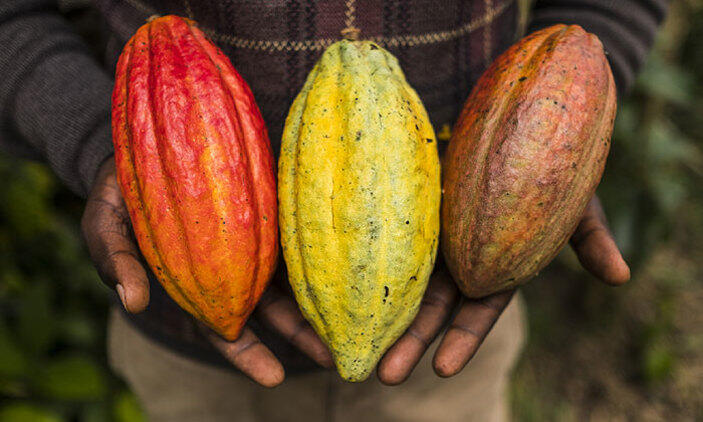Antoine Kakule Kihumuledi longs for a car to transport his cocoa crop and, like fellow residents in the Beni region in eastern Democratic Republic of Congo, he wants peace so he can pursue his dreams.
Kakule, 51, is a pioneer in cultivating cocoa in this area of Nord Kivu province, which has been ravaged by war and violence for two decades.
He began planting in the middle of the Second Congo War (1998-2003) and had his first harvest sometime around 2007.
With the help of a sickle mounted at the end of a long shaft, the father of six children cuts the yellow and orange pods from the cocoa trees which grow on his plantation in Mbau, some 25 kilometres (15 miles) to the north of the town of Beni.
But for the past two years the region has been afflicted with waves of massacres that have killed 700 civilians, mostly hacked to death.
Congolese officials have blamed the attacks on the Allied Democratic Forces (ADF), a group of rebels dominated by puritanical Ugandan Muslims, but several expert reports have suggested that other groups, including elements within the Congolese army, took part in some killings.
The insecurity in the region is hindering the potential for cocoa cultivation to open a way for “an agricultural middle class to emerge,” said Jacques Matumo, administrator for ESCO Kivu, a local cocoa company.
“We lost a lot of growers” in the massacres, he said.
Some who survived “abandoned their fields” and their crops rotted, if they weren’t stolen first, he added.
Coffee substitute
Kakule says he feels safe as the Congolese army is stationed nearby, but admits he doesn’t dare venture further than their outpost.
In a country where the UN estimates nearly nine out of 10 people are living on less than $1.25 per day, Kakule considers himself fortunate.
He feeds his family with cassava and vegetables grown on his farm, and the cocoa is a cash crop.
After the cocoa pods are cut open, the pulp is left to ferment, during which it liquefies and drains away to expose the beans that are then dried under the sun. The dried beans are sold and eventually exported.
“The money allows me to school my children, pay for their medical care and undertake projects, such as building a new house,” Kakule said.
He is particularly proud of his daughter, who has just received her teaching degree.
Like much of the other natural resources and crops in DR Congo, one of the least developed nations on the planet, cocoa is not processed inside the country.
Source: AFP











